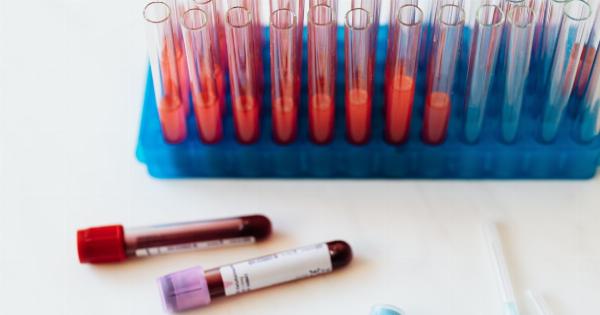Breast cancer is a life-threatening disease that affects millions of women worldwide.
According to the World Health Organization (WHO), breast cancer is the most common cancer among women globally, with an estimated 2.3 million new cases diagnosed in 2020 alone. Detecting breast cancer in its early stages is crucial for effective treatment and improved survival rates.
To aid in early detection, researchers have been working on developing cheap genetic exams that can help identify individuals at a higher risk of breast cancer.
Understanding Genetic Exams
Genetic exams, also known as genetic tests, are medical tests that analyze an individual’s DNA for specific gene mutations or variations that may contribute to the development of certain diseases, including breast cancer.
These tests can provide valuable information about an individual’s genetic predisposition to breast cancer, helping doctors personalize treatment plans and implement preventive measures.
Conventional Genetic Exams for Breast Cancer Detection
Currently, traditional genetic exams for breast cancer detection can be quite expensive, limiting their accessibility to many individuals. These exams involve analyzing multiple genes known to be associated with breast cancer, such as BRCA1 and BRCA2.
However, the cost of testing these genes can be prohibitively high for some patients, preventing them from accessing potentially life-saving information.
The Promise of Cheap Genetic Exams
Researchers and healthcare professionals understand the need for more affordable genetic exams for breast cancer detection.
They recognize that cost barriers can prevent individuals from undergoing screening, which may delay the diagnosis and subsequent treatment. This has led to the development of cheaper alternatives that can detect breast cancer with similar accuracy.
1. Genetic Panel Testing
Genetic panel testing involves examining a specific set of genes associated with breast cancer.
Unlike traditional genetic exams that analyze individual genes one at a time, panel testing simultaneously assesses multiple genes at once, significantly reducing costs. This method allows healthcare providers to screen for various gene mutations or variations associated with breast cancer, providing a comprehensive assessment of a person’s genetic risk.
2. Next-Generation Sequencing (NGS)
Next-generation sequencing (NGS) is a cutting-edge technology that enables rapid and cost-effective analysis of an individual’s entire genetic code.
This advanced technique allows healthcare providers to identify genetic variations associated with breast cancer, even those not previously known or investigated. NGS has revolutionized genetic testing, making it more accessible and affordable for individuals concerned about their risk of breast cancer.
3. Methylation-Specific PCR (MSP)
Methylation-specific polymerase chain reaction (MSP) is a specialized genetic testing method that detects changes in DNA methylation patterns. DNA methylation is an epigenetic modification involved in the regulation of gene expression.
Abnormal methylation patterns have been associated with breast cancer development. MSP can detect these changes and provide information about an individual’s breast cancer risk, paving the way for early intervention and personalized treatment strategies.
4. Saliva-Based Genetic Exams
Saliva-based genetic exams have gained attention due to their non-invasive nature and ease of collection.
These exams analyze an individual’s DNA extracted from saliva samples to detect specific gene mutations or variations related to breast cancer. Saliva-based genetic exams are not only cost-effective but also offer convenience and increased accessibility, making them a promising tool for early breast cancer detection.
Advantages of Cheap Genetic Exams for Breast Cancer Detection
The development of affordable genetic exams for breast cancer detection holds several advantages:.
1. Increased Accessibility
Cheap genetic exams would break down financial barriers, ensuring that more individuals have access to screening for breast cancer. This is particularly important for populations with limited resources or inadequate healthcare coverage.
2. Earlier Detection
By making genetic exams more affordable and accessible, individuals can detect their breast cancer risk at an earlier stage.
Early detection is crucial for implementing preventive measures and starting treatment plans promptly, increasing the chances of successful outcomes.
3. Personalized Treatment Plans
Cheap genetic exams can provide valuable information about an individual’s specific genetic makeup and identify the most effective treatment plan for their unique situation.
This targeted approach can result in better outcomes and reduce the risk of adverse effects associated with generalized treatment methods.
4. Risk Management Strategies
Knowing one’s genetic risk for breast cancer allows individuals to make informed decisions regarding preventive measures.
This may include increased surveillance, lifestyle modifications, and the consideration of risk-reducing strategies such as prophylactic surgery or chemoprevention.
Challenges and Considerations
While the development of cheap genetic exams for breast cancer detection is undoubtedly promising, several challenges and considerations need to be addressed:.
1. Test Accuracy and Sensitivity
It is crucial to ensure that cheap genetic exams maintain a high level of accuracy and sensitivity. False-positive or false-negative results can lead to unnecessary anxiety or missed diagnoses, respectively.
Continued research and validation are necessary to ensure the reliability of these exams.
2. Ethical Implications
Genetic testing raises ethical concerns, such as genetic discrimination and the potential psychological impact of knowing one’s genetic risk for breast cancer.
Genetic counseling and psychological support should be an integral part of the testing process, helping individuals fully understand the implications of the results.
3. Accessibility across Populations
While cheap genetic exams can increase accessibility, it is crucial to ensure that they are available to underprivileged populations and communities with limited resources.
Efforts should be made to address disparities in access to healthcare and genetic testing.
Conclusion
Overall, the development of cheap genetic exams for breast cancer detection is a significant step forward in improving early detection rates and personalized treatment approaches.
These exams have the potential to make a tremendous impact on breast cancer outcomes by breaking down financial barriers and increasing accessibility for all individuals. However, careful consideration must be given to accuracy, ethics, and equitable distribution to ensure the successful integration of these exams into healthcare systems worldwide.



























